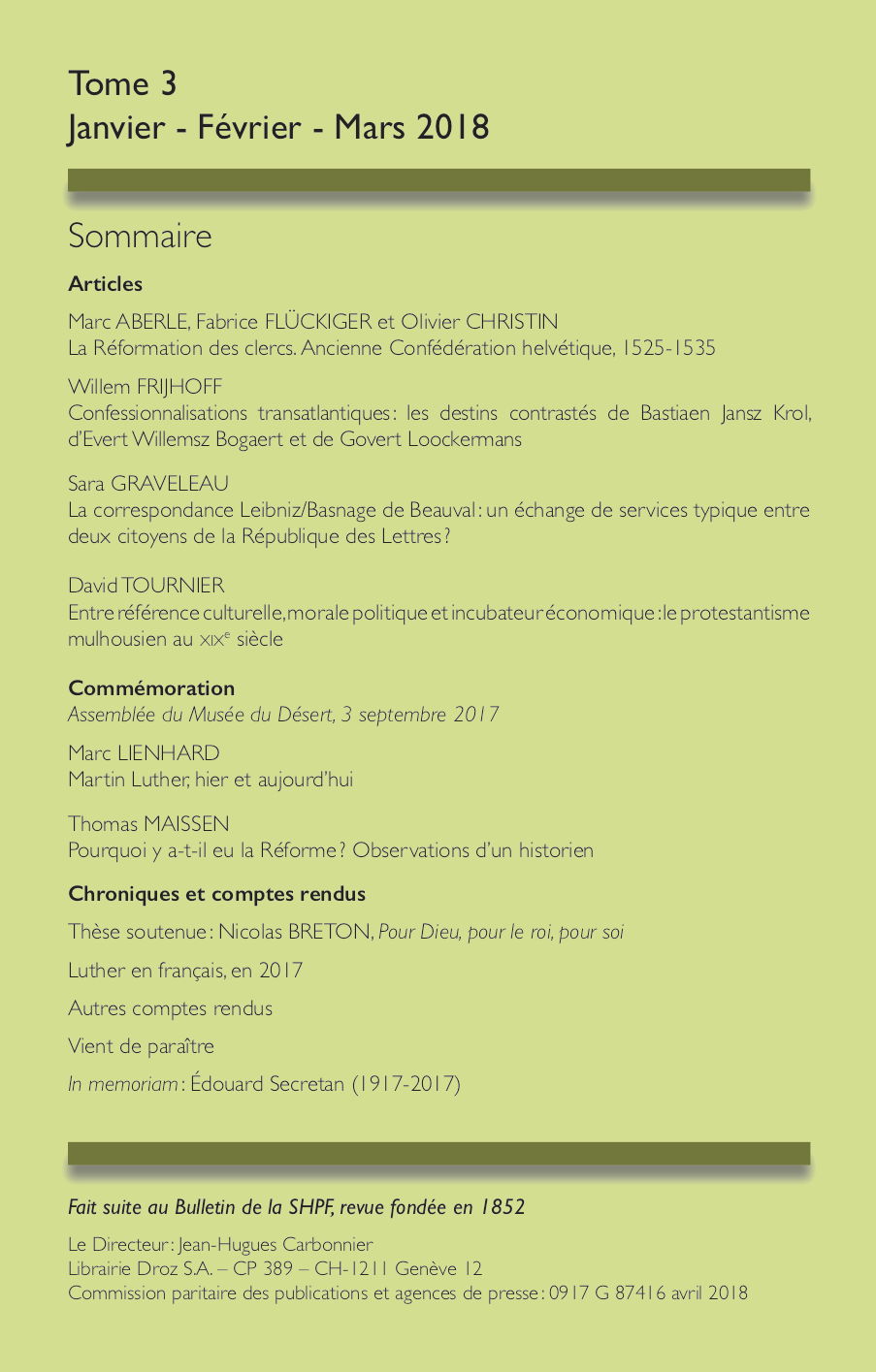Confessionnalisations transatlantiques
Les destins contrastés de Bastiaen Jansz Krol, d’Evert Willemsz Bogaert et de Govert Loockermans
Abstract
Religion has played an important role in the movements of merchants, settlers and officials of the trading companies between Europe and 17th-century America, either by urging to depart or by ensuring transnational settlers with a cultural fixation through the adoption of a new religious identity. In this article, the contrasting religious destinies of three important actors of early 17th-century New Netherland are examined. They embody three ways of confessionalisation, with different degrees of intensity: the first comforter of the sick Bastiaen Jansz Krol, a former Mennonite, who during a short moment acted also as director of the colony; the second Reformed minister Evert Willemsz Bogaert (Bogardus), educated in a Puritan climate, but who, pushed by the evolution of the colony, was to adopt a critical stance toward confessionalisation; and the merchant Govert Loockermans, born in a Catholic family of Spanish Brabant, but converted into an exemplary Protestant burgher and dignitary in New Netherland.
